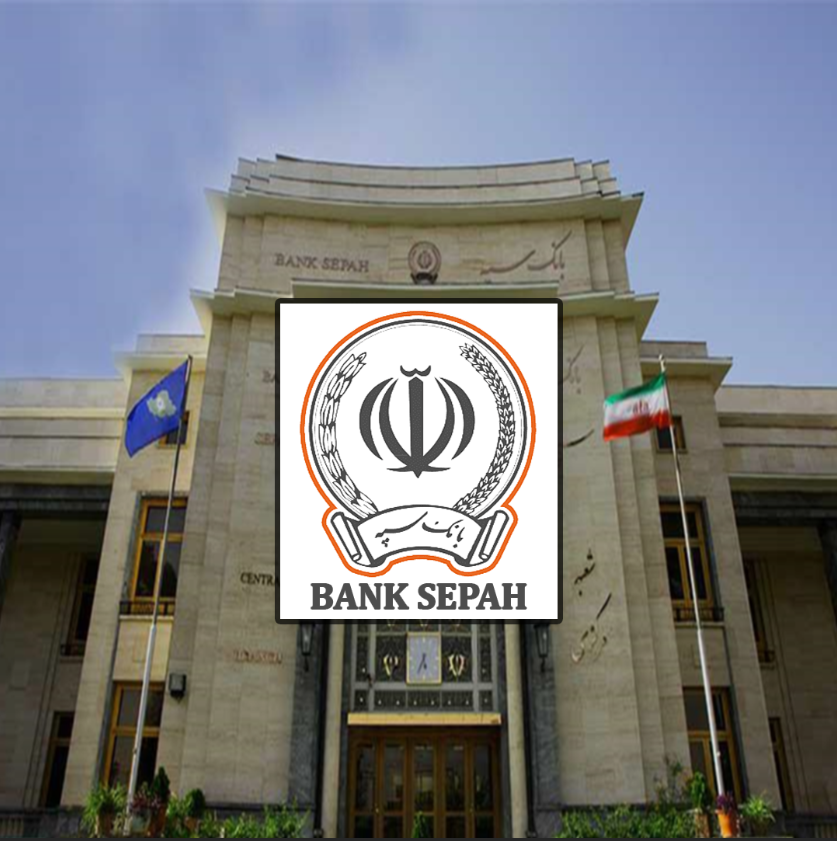
Bank Sepah, Iran's oldest bank, is a pivotal player in the Iranian Revolutionary Guard Corps' (IRGC) illicit activities. With over 40 million customers and thousands of branches, Bank Sepah has been secretly financing Iran's ballistic missile procurement network, nuclear program, proxy financing and providing financial infrastructure to the Ministry of Defense. This article delves into the bank's suspicious dealings, its ties to the IRGC, and the recent devastating cyber-attack that has left its services in shambles.

Bank Sepah, founded in 1925, is the oldest bank in Iran. Established long before the Iranian Islamic Revolution, it has provided financial services to the Iranian people and the Iranian Armed Forces. Currently, Bank Sepah is fully owned by the government and the Armed Forces, and boasts an extensive customer base and network of connections, rendering it a component of Iran's Shadow Banking system.
Sepah is one of the largest banks in the county, with over 40 million customers and thousands of branches. As the primary bank of the Iranian Armed Forces, these days the bank is involved in almost every possible illicit or prohibited activity in Iran, including:
- Serving as the financial linchpin of Iran's missile procurement network
- Providing critical financial services to Iran's missile industry, facilitating financing and processing dozens of multi-million-dollar transactions
- Taking part in the Iranian nuclear and ballistic missile programs
- Providing financial infrastructure and supply channels for the Ministry of Defense and Armed Forces Logistics (MODAFL).
- Acting as a financial platform for the MODAFL to pay its agents abroad
The bank holds most of the Armed Forces' accounts, and many high-ranking officials and IRGC officers have personal accounts in the bank. The bank’s core purpose is to support the Armed-Forces and their staff - therefore, it provides them with a special interest-free loan system. Like every other bank in Iran, Sepah is isolated from the international banking system (including the global financing messaging network, SWIFT), and under heavy US sanctions for its illicit activities since 2012. Despite all that, Bank Sepah still holds active branches in France, Germany United Kingdom and more. In 2019, five banks were merged into Sepah, each providing services and owned by a different branch of the Iranian Armed-Forces:
- Ansar Bank, owned by the IRGC and IRGC-QF
- Mehr Eghtesad Bank, owned by the Basij
- Hekmat Iranian Bank, owned by the Iranian Armed Forces
- Ghavamin Bank, owned by the Public Security Police
- Kosar Credit Institution, owned by MODAFL
The consolidation created a complex web of financial institutions, all working together to promote the interests of the IRGC.
Furthermore, due to its involvement in the Iranian Shadow Banking system, Bank Sepah also owns two key exchange houses: Omid Sepah Exchange House and Hekmat Iranian Exchange House, which have both been designated for engaging in multi-million-dollar illicit transactions on behalf of MODAFL.
Not only does the bank finance the Armed Forces, it is also run by them. The current CEO of the bank, Ayatollah Ebrahimi, joined the IRGC at the age of 14, rose to become a high-ranking officer, and later directly helped finance IRGC-QF as the managing director of Ansar bank. These actions landed him on the Specially Designated Nationals (SDN) list and subjected him to secondary sanctions. Did someone day "money laundering" and "terrorism financing"? Not exactly a model of integrity and good governance…
 Ayatollah Ebrahimi
Ayatollah Ebrahimi
In mid-June, shortly after celebrating its 100th anniversary, the bank suffered a devastating cyber-attack that brought down all its services and wiped its databases clean. Now, A massive leak of internal documents from Sepah’s network reveals another large arsenal of previously unexposed front companies. This leak is only the beginning - Follow WikIran's next articles as we dig deeper into the regime's secret financing channels, illicit trade and sanction-evading activities.